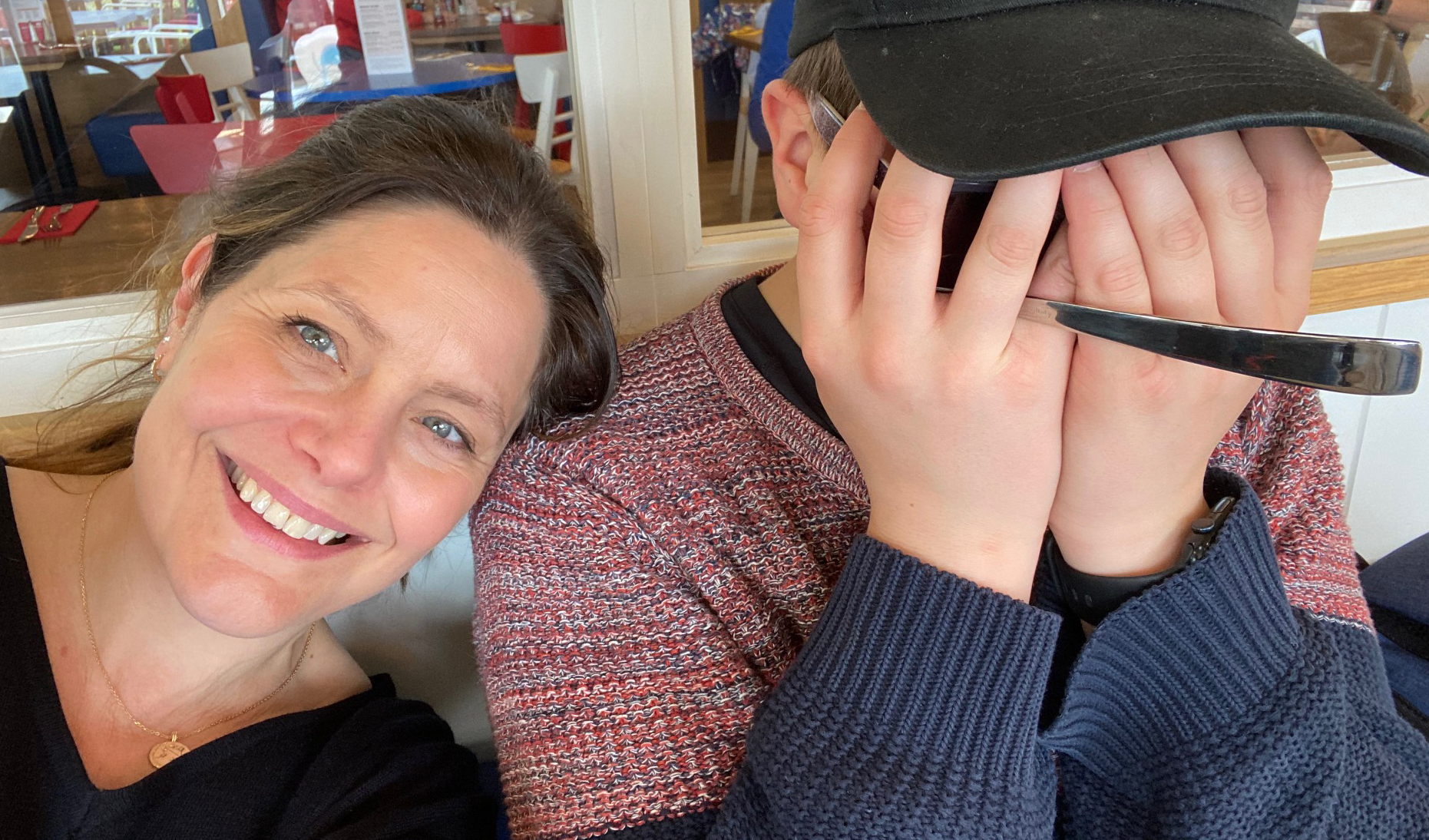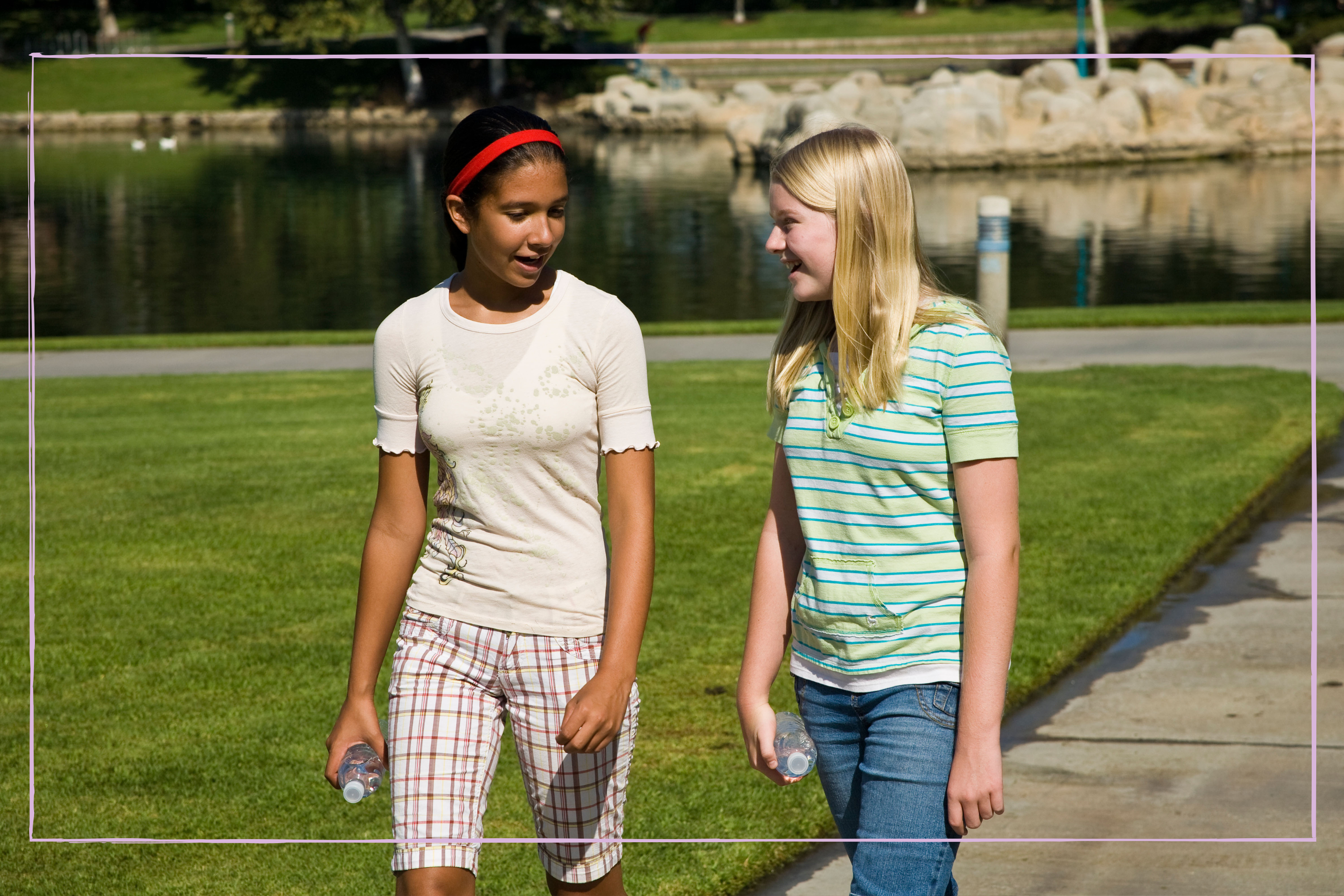Is your teenager drawn to taking risks? A child psychologist explains why (plus what you can do to keep them a bit safer)
Have you ever wondered why your teen is up for taking risks? You're not the only one...


Is your teenager always taking risks and you've always wondered why? Experts unpick what is more likely to cause them to do something they wouldn't usually do, and you might be surprised by the motivation.
Parents of teenagers will often wonder what to expect when their teenager has started dating or how much sleep teenagers need - and they'll be shocked to learn that the real reason they're sleeping in isn't because they're lazy. If this sounds like your experience of parenting teens then there's another stereotypical behaviour that you might want to explore, and that's why your teenager is always taking risks.
Whether it's jumping off a rock face into the sea on holiday, your teen trying vaping, or trying to climb over walls like a stunt double, you might wonder why they are taking a chance without considering the consequences.
Child psychologist Dr Jane Gilmour, explains why teens are more likely to take risks and under what circumstances, during an interview on BBC Radio 4.
"Young people are drawn towards novelty and risk and that effect is particular to young people under the age of 25, so for example, there's a chap called Laurence Steinberg who showed that if young people believe that their peers were around, whether they were actually or not, they were much more likely to take risks in a driving game in this context but that effect didn't occur for older adults."
And if you're wondering why, Dr Gilmour said, "It's all about brain state. Teenage brains thrive on reward (something worth remembering when you are managing teen behaviour at home or school). Taking a risk (even if it’s dangerous) which has the potential to win praise from peers is intoxicating for a young brain."
A photo posted by drjanegilmour on
And for parents wanting to know what they can do about it, Dr Gilmour advised parents to consider, "The next time your teen is going to a party… remember the teen you are talking to at home in a calm environment (before the party) can weigh up risk and engage in your discussion… but that calm brain is in a different state to ‘the party brain’ – THAT brain is surrounded by peers and is less able to reason. Knowledge is power – so talk about it with your teen…"
GoodtoKnow Newsletter
Parenting advice, hot topics, best buys and family finance tips delivered straight to your inbox.
According to NHS website, parents should speak to teenagers by "Assuming they have a good reason for doing what they do. Show them you respect their intelligence and are curious about the choices they've made. If you do not pre-judge their behaviour as "stupid" or "wrong", they're more likely to open up and explain why their actions made sense to them."
For instance, Instead of trying to be the expert on your teenager's life, try to help them think for themselves by discussing the potential implications of poor behaviour choices. For example, "How does smoking weed make you feel the next day? So, if you feel like that, how's that going to affect you playing football?"
Help them think critically about what they see and hear. "So Paul said X: is that what you think?" Help them feel that they can deal with life's challenges. Remind them of what they're good at and what you like about them. This will give them confidence in other areas of their lives.
Remember that information is empowering. Point them towards websites that can give them information on drugs, sex and smoking so they can read the facts and make up their minds. Help them think of ways they can respond and cope. "So, when you feel like that, is there anything you can do to make yourself feel better?"
And finally, encourage them to think through the pros and cons of their behaviour.
What your teens need to know
If you're trying to encourage your teen to be responsible while out with their friends, then it's worth making sure they have a clear understanding of safety aspects that could impact their lives. And if you don't know where to start, Safekids has a set of safety guides for parents with teenagers covering a wide range of topics that they believe a teenager should have an understanding of. How many of them does your teenager know? If you teach them some, it might just save a life...
- Bike Safety
- Boating Safety
- Burn Prevention
- Carbon Monoxide Prevention
- Falls Prevention
- Fire Safety
- Getting Ready to Drive
- Gun Safety
- Medication Safety
- Pedestrian Safety
- Poison Prevention
- Skating and Skateboarding Safety
- Sports Safety
- Swimming Safety
- Teen Drivers
- Water Safety
In other family news, parents say support from their potential employer is important, new research reveals – is your work doing enough? and it's great news for parents – kids who fight with their siblings will fare better in life, according to science.

Selina is a Senior Family Writer for GoodtoKnow and has more than 16 years years of experience. She specialises in royal family news, including the latest activities of Prince George, Charlotte, Louis, Archie and Lilibet. She also covers the latest government, health and charity advice for families. Selina graduated from the University of Sheffield in 2006 with a degree in Journalism, and gained her NCTJ and NCE qualifications. During her career, she’s also written for Woman, Woman's Own, Woman&Home, and Woman's Weekly as well as Heat magazine, Bang Showbiz - and the Scunthorpe Telegraph. When she's not covering family news, you can find her exploring new countryside walking routes, catching up with friends over good food, or making memories (including award-winning scarecrows!)
-
 Strong willed teens don’t need to be ‘tamed,’ they need to be nurtured - expert shares how
Strong willed teens don’t need to be ‘tamed,’ they need to be nurtured - expert shares howIt might surprise parents when their strong willed child remains that way into the teenage years - instead of crushing this part of their temperament, an expert shares how to nurture it.
By Lucy Wigley Published
-
 We ask teenagers what they wish their parents had done differently, and their answers are surprisingly candid
We ask teenagers what they wish their parents had done differently, and their answers are surprisingly candidA lot of parents will wonder if their kids wish they'd done some differently, but never get to find out. We got to ask some teens this question, and here's their candid answers.
By Lucy Wigley Last updated
-
 9 things I'm doing to teach my teenage son about 'toxic masculinity'
9 things I'm doing to teach my teenage son about 'toxic masculinity'Influencers are having a worrying impact on young boys' behaviour and attitudes
By Debra Waters Published
-
 I have a 13-year-old son - here’s what I’ve found most difficult about parenting a teenager, and you might be able to relate
I have a 13-year-old son - here’s what I’ve found most difficult about parenting a teenager, and you might be able to relateMonosyllabic responses from our teenagers may sting, but it's normal
By Debra Waters Published
-
 What is sadfishing? How to talk to your teen about this online trend, and the impact on mental health
What is sadfishing? How to talk to your teen about this online trend, and the impact on mental healthHave you been wondering what is sadfishing? An expert shares why parents should have a conversation with their teens about this potentially dangerous practice.
By Lucy Wigley Published
-
 9 ways to let teenagers take positive risks this summer, according to an expert
9 ways to let teenagers take positive risks this summer, according to an expertHelp boost your teen's independence and confidence this summer with these small, manageable risks.
By Adam England Published
-
 What are 'Mickey Mouse' degrees? Expert reveals why this term is unhelpful for teens making higher education choices
What are 'Mickey Mouse' degrees? Expert reveals why this term is unhelpful for teens making higher education choicesWhat are 'Mickey Mouse' degrees? For teens embarking on those all-important higher education choices, it's an unhelpful term.
By Lucy Wigley Published
-
 Teens who display this one important quality during adolescent friendships, go on to be great parents according to research
Teens who display this one important quality during adolescent friendships, go on to be great parents according to researchA study has shown teens who display this one important quality during adolescent friendships, go on to be great parents - and it's fascinating.
By Lucy Wigley Published